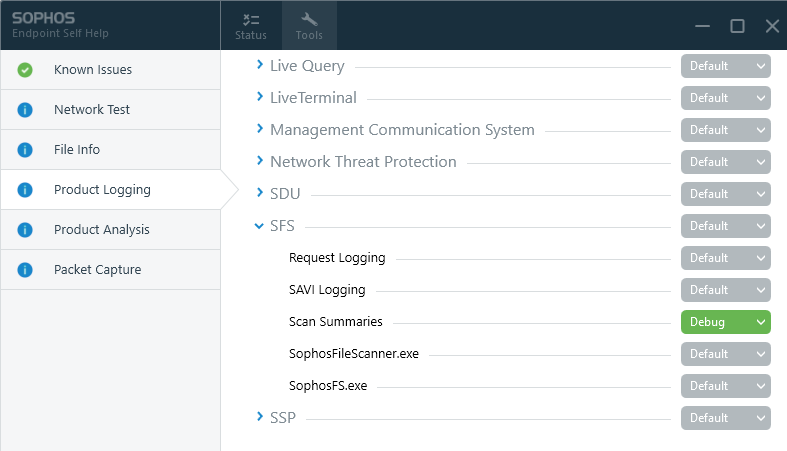We have group of web servers with very large Unpaged Memory used by Sophos.
Despite the promise of a fix in the latest agent, all that has happened is the RAM usage gets cleared down on a reboot, it then creeps back up at a rate of 2GB a week. By the time monthly patching occurs we have between 8 and 10 GB of memory reserved for Sophos which is a bit rubbish.
Does anyone know of way we can find out what is causing Sophos to get so excited? Specifically which files or processes is causing the FilePropertyDbFull-xxxxxxxxxxxxxxxxxxxxxxxx.bin files to grow so large, I am assuming it is something to do with the file scanner and seeing a large number of files but which ones and what location? as far as I can ascertain the servers are just web servers and there is little or no files transfering through these servers.
Sophos as product does seem to hoard info and is not very willing to share it with anyone.
This thread was automatically locked due to age.





